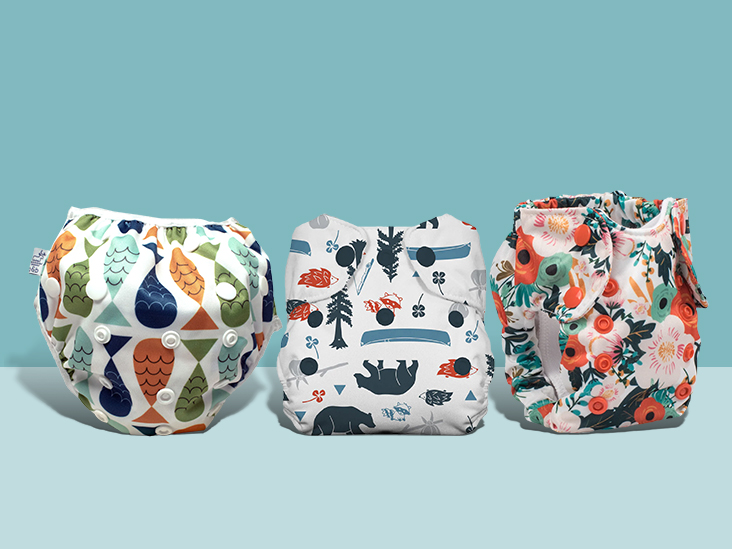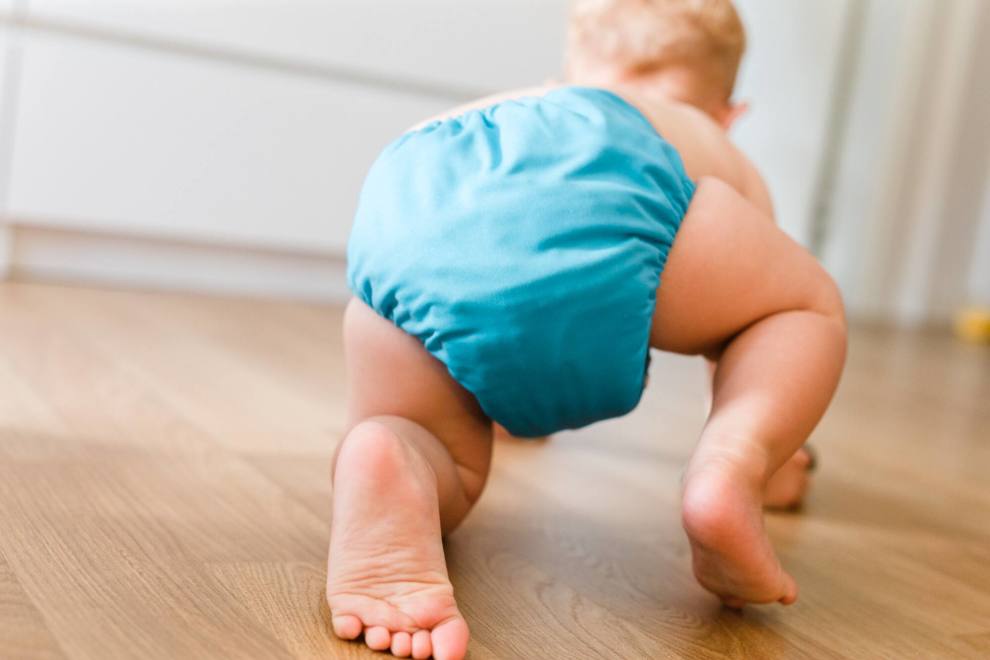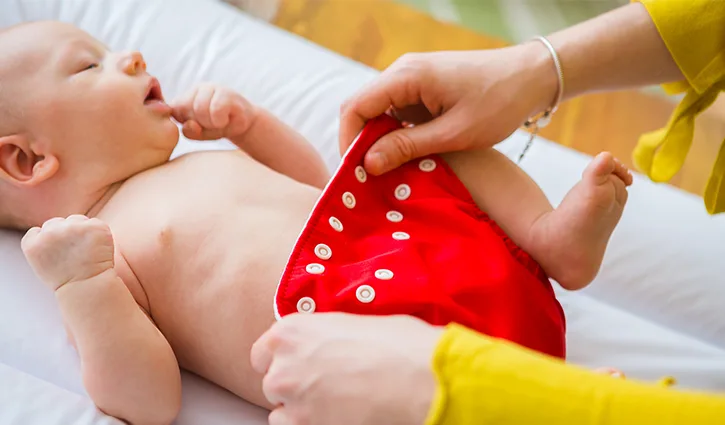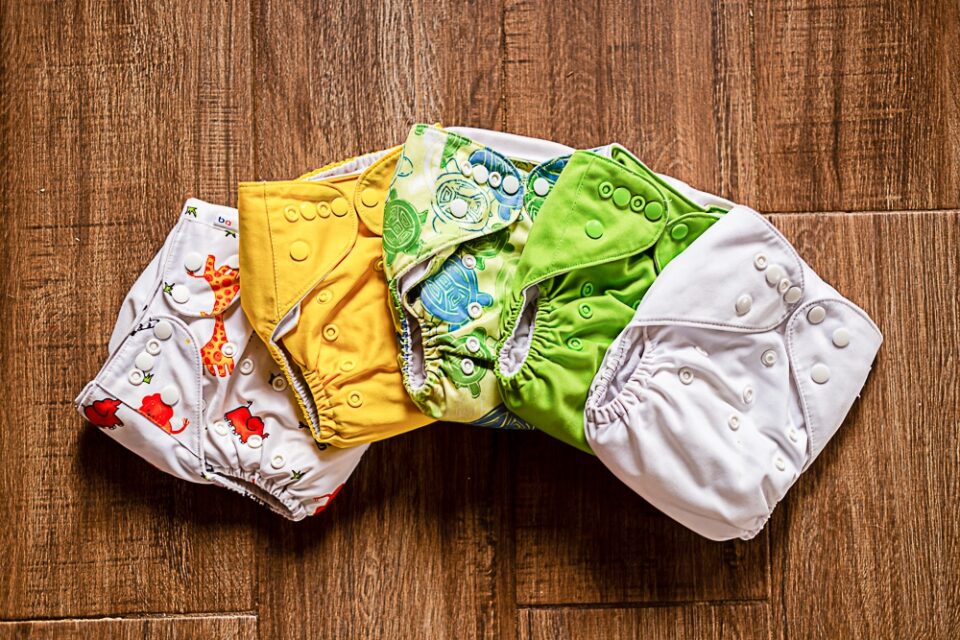When it comes to buying cloth nappies, there are a lot of options to choose from. But which age is the best time to start using them? In this article, we’ll look at the pros and cons of using cloth nappies at different ages, so that you can make the best decision for your family.
What to Look for in a Good Cloth Diaper?

When it comes to choosing a cloth diaper, there are many factors to consider. However, what is most important is that the diaper is comfortable and fits well. This means babies of different ages can start using cloth diapers.
Here are some tips for selecting a cloth diaper for your baby:
– Choose a size that will fit your baby well. Cloth diapers come in different sizes, so it is important to choose one that will fit your baby comfortably.
– Consider whether you want an all-in-one cloth diaper or a fitted cloth diaper. An all-in-one cloth diaper includes the liner and the cover. Fitted cloth diapers have a tighter fit around your baby’s legs and waist, so they are better if you want to avoid leaks.
– Think about what type of fabric you would like to use. There are many types of fabrics available, including cotton, bamboo, microfiber, and hemp. It is up to you which type of fabric you choose. Some people prefer cotton because it is soft and absorbent. Others prefer hemp because it is environmentally friendly and durable.
How to Get Started with Cloth Nappies?

If you’re thinking about cloth diapering, there are a few things to keep in mind before starting.
– First, it is best to start when your baby is younger because they will not be as heavy with a cloth diaper and it will be less complicated.
– Second, if you are using a one-size-fits-all diaper cover, it is best to get one that is small enough for your baby when they are newborn.
– Third, make sure to read the instructions that come with your cloth diapers because there may be some specific things you need to do in order to get them working properly.
– Finally, don’t be discouraged if your diapers don’t work the first time – everyone’s diapers are different! Cloth nappies in NZ are available from various retailers, including those in online and physical stores.
Benefits of Cloth Nappies

Cloth nappies have a host of benefits that can make them a better option for parents. Here are three reasons why you might want to consider using them:
- Cloth nappies are more environmentally-friendly than disposable nappies. Disposable nappies release around 18,000 pieces of plastic into the environment every day, while a single cloth nappy can last up to 12 hours.
- Cloth nappies are cheaper in the long run. A pack of 20 reusable cloth nappies will cost around £10-12, compared to around £40 for a pack of disposable nappies over the course of 6-12 months.
- Cloth nappies are safer for your child. Unlike disposable nappies, which can contain dangerous chemicals and ingredients, cloth nappies are made from natural materials such as cotton and linen which are less likely to cause irritation or skin allergies.
Pros and Cons of Cloth Nappies
Cloth nappies are a great way for new parents to reduce their environmental impact, but they come with their own set of pros and cons. Here are some things to consider before making the switch to cloth nappies:
Pro: Cloth nappies are less expensive than disposable nappies, and can be reused multiple times.
Con: Some people find cloth nappies uncomfortable to wear for long periods of time.

The right cloth nappy for your baby depends on a few things, such as their age and weight. This guide will help you choose the appropriate nappy for your baby according to their stage of development.
If your baby is under one year old, we recommend using a newborn-sized nappy. Newborns are not yet ready to use a regular sized nappy and need absorbency that is specifically designed for their size. Length and width of the nappy should be adjusted according to your baby’s weight and height.
If your baby is between one and six months old, we recommend using a small or medium nappy. At this stage, babies are starting to develop some bladder and bowel control, so they can start using a regular sized nappy.
If your baby is between six and twelve months old, we recommend using a large size nappy. At this stage, babies are growing rapidly and their bladders and bowels are starting to function more independently.
When to Give Up Disposable Nappies?
There is no one-size-fits-all answer to this question, as the best time to give up disposable nappies will vary depending on your child’s age and weight. However, generally speaking, most parents find that their child is ready to start using cloth nappies around the age of two or three.
If you’re not sure when your child is ready to switch to cloth nappies, it’s generally a good idea to wait until they ask for them. You can encourage your child to ask for them by making sure that you’re always prepared to give them a change of clothes if necessary, and by letting them know that there are benefits to using cloth nappies, such as being more environmentally-friendly.
Conclusion
It’s never too early to get started with cloth diapers, but there are a few things to keep in mind when picking the right age to start. Younger babies will likely have faster metabolisms and can absorb more nutrients from the diaper than older babies or toddlers. So if your baby is healthy and gaining weight normally, it’s probably okay to go ahead and try cloth diapers. Older babies and toddlers may be able to use disposable diapers for a little while longer, but eventually they will outgrow them and want to try cloth diapers. At that point you’ll have a better idea of what size they are (based on their current weight) and you can begin using smaller sizes until they’re ready for full-time Cloth Diaper Use (CDU).



